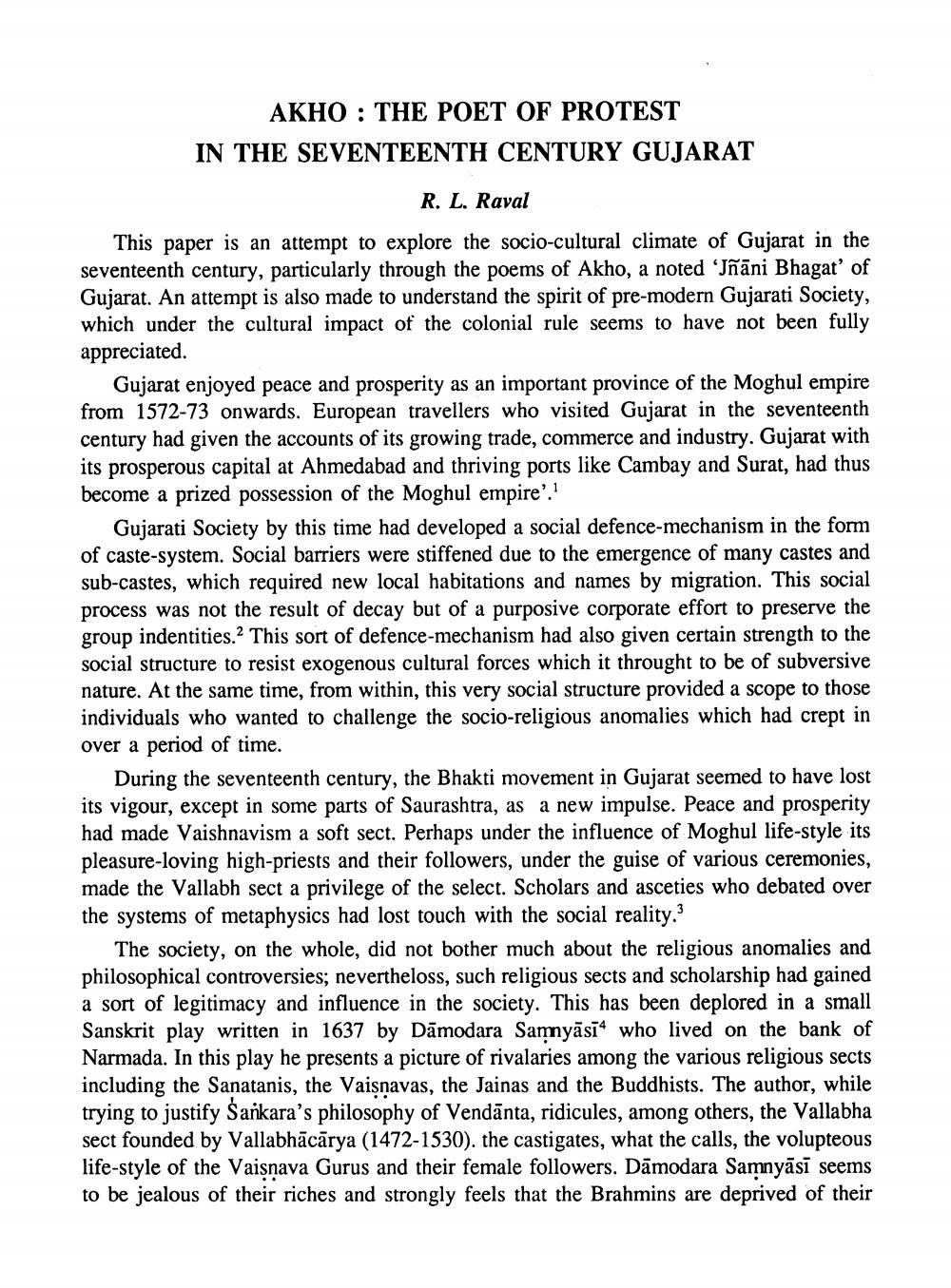________________
AKHO : THE POET OF PROTEST IN THE SEVENTEENTH CENTURY GUJARAT
R. L. Raval
This paper is an attempt to explore the socio-cultural climate of Gujarat in the seventeenth century, particularly through the poems of Akho, a noted 'Unāni Bhagat' of Gujarat. An attempt is also made to understand the spirit of pre-modern Gujarati Society, which under the cultural impact of the colonial rule seems to have not been fully appreciated.
Gujarat enjoyed peace and prosperity as an important province of the Moghul empire from 1572-73 onwards. European travellers who visited Gujarat in the seventeenth century had given the accounts of its growing trade, commerce and industry. Gujarat with its prosperous capital at Ahmedabad and thriving ports like Cambay and Surat, had thus become a prized possession of the Moghul empire?!
Gujarati Society by this time had developed a social defence-mechanism in the form of caste-system. Social barriers were stiffened due to the emergence of many castes and sub-castes, which required new local habitations and names by migration. This social process was not the result of decay but of a purposive corporate effort to preserve the group indentities. This sort of defence-mechanism had also given certain strength to the social structure to resist exogenous cultural forces which it throught to be of subversive nature. At the same time, from within, this very social structure provided a scope to those individuals who wanted to challenge the socio-religious anomalies which had crept in over a period of time.
During the seventeenth century, the Bhakti movement in Gujarat seemed to have lost its vigour, except in some parts of Saurashtra, as a new impulse. Peace and prosperity had made Vaishnavism a soft sect. Perhaps under the influence of Moghul life-style its pleasure-loving high-priests and their followers, under the guise of various ceremonies, made the Vallabh sect a privilege of the select. Scholars and asceties who debated over the systems of metaphysics had lost touch with the social reality.
The society, on the whole, did not bother much about the religious anomalies and philosophical controversies; nevertheloss, such religious sects and scholarship had gained a sort of legitimacy and influence in the society. This has been deplored in a small Sanskrit play written in 1637 by Damodara Samyāsī4 who lived on the bank of Narmada. In this play he presents a picture of rivalaries among the various religious sects including the Sanatanis, the Vaisnavas, the Jainas and the Buddhists. The author, wł trying to justify Sankara's philosophy of Vendānta, ridicules, among others, the Vallabha sect founded by Vallabhācārya (1472-1530). the castigates, what the calls, the volupteous life-style of the Vaisnava Gurus and their female followers. Dāmodara Samnyāsī seems to be jealous of their riches and strongly feels that the Brahmins are deprived of their




